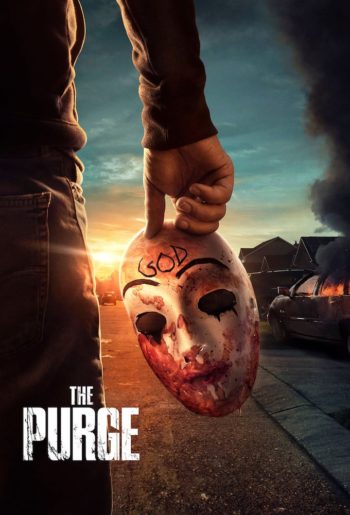
This article contains spoilers for The Purge films and TV series.
Here’s a question for y’all: if crime was legal for 12 hours, what would you do? It’s something I’d bet many reading this have asked/ answered before since it’s the ‘what if’ that informs one of the biggest horror properties around: The Purge. It’s a clever little conceit, which encourages people to think big and small alike. Whether they’d want to rob a bank, blow up their work or nick a plane then it’s all fair game. Likewise if they want to cheat on their taxes, beat up an old colleague or hack into, then delete all the content from, their least favourite independent movie site. So it’s been my thought for a while that everyone who hears about The Purge comes up with something in their head that is better than the thing they’re about to watch.
It’s not that the franchise is especially bad – heck, four films and two seasons of a TV show later, and I’m still interested enough to tune in. Yet I don’t know that it has ever done its conversation starting premise justice. I think my key issue with it is that I don’t think creator James DeMonaco gets why it is such a good one: it raises so many possibilities. Very few of which have been explored to date. This problem has been evident from the first, in which the ‘everything is legal’ angle was limited to a glorified backdrop for an otherwise unremarkable home invasion flick. Hence, the things that could be happening outside the house, which we saw through snippets during montages and news footage, were more interesting than what happened inside it. Yeah, it was book ended by some decent black comedy, that opened it out a bit, and a statement of intent. But a poor punter, needing an average to long bog-break at the start and end, could be forgiven for thinking they were watching something more pedestrian. Albeit something in which they heard the word “purge” more often than the rest of their life combined.
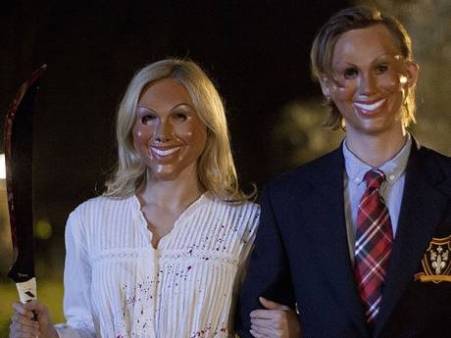
Perhaps the bigwigs at Blumhouse only intended it to be a small-scale proof of concept: a tantalising teaser to see if it could get film-goers talking. Arguably, you could view Hellraiser and Alien through this lens, yet they both commit to their ideas in a way that doesn’t make viewers miss the film they aren’t seeing. We got to venture outside more in the follow up, the aptly named The Purge Anarchy. However, save for darkly funny hunting at the end that explored privilege and dehumanisation, it seemed the main things people wanted to use their freedom for was to engage in samey action set pieces. Still, it was good fun – even if it treaded very similar ground to The Warriors or Escape From New York. Though it still didn’t seem like the exploration into excess it could have been. The world building was shallow, with the pairing between po-faced melodrama and camp satire never feeling successfully negotiated. Granted, there were interesting themes raised, and the rebel uprising that it cut to a couple of times was cool: the establishment’s assumption about the now armed masses’ compliance working against them. Although these parts felt like afterthoughts, overshadowed by the video game like mechanics that focused on a string of sieges, escapes and gun battles for a tired avenging angel trope.
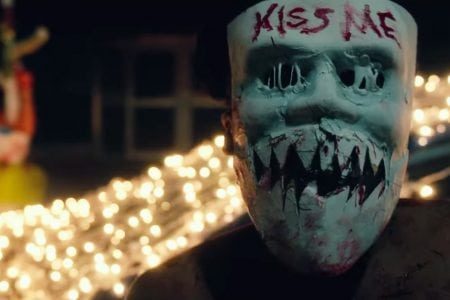
Election Year and The First Purge both had a bit more bite, beginning to warm to the real-world significance of the series that couldn’t have been foreseen at first. The rise of right wing populism in the West, in particular the success of demagogue Donald Trump, provided a foil to the New Founding Fathers of America. It’s in a world where the solution to people struggling for work is to build a wall that The Purge seems worryingly prophetic. In particular, paralleling the modern “culture war” narratives gave the films’ focus on marginalised groups an exciting, contemporary relevance. In line with this zeitgeist quality, there were attempts to explore the dystopian world of The Purge, along with the social factors which exacerbate the kinds of divisions it thrives on. However, fidelity to its sensationalist action quotient made it too trashy for what it was doing, and the films struggled to align their anti-violence ethos with their gleefully violent content. Seeing a Black Lives Matter style group engage in super slow-mo gun-play with the far right was more tasteless than timely. And one particular bit recalling Dylan Roof’s shooting spree in Charleston was as tone-deaf an example of merging the fictional world with the real one as I’ve ever seen. Moreover, a continued focus on characters who already disliked The Purge, save for one clearly mentally ill character, also meant we did not see perhaps the most promising plot-line: how otherwise reasonable people are caught up in it. After all, until then the Purgers themselves had by and large been an anonymous horde, not dissimilar to the walking dead. There for the good guys to avoid or defend themselves from. Surely it was time to look beyond the neon masks.
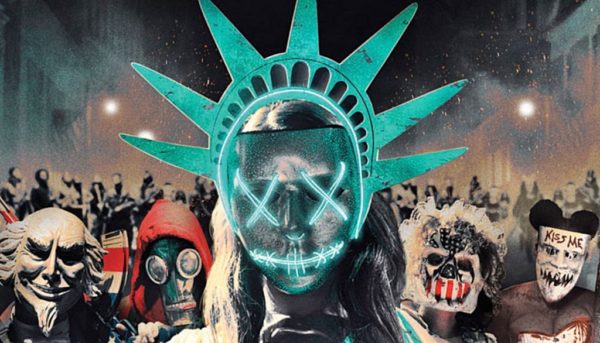
Thus, I was quite excited when I heard The Purge was moving to a long-form narrative style for a TV show. Box-set fans love a good anti-hero after all, so this seemed a great vehicle to flesh things out. Despite being ultimately aimless and lacking much of a through line, Season 1 had its moments, with subplots about socialites and shock jocks adding depth to the world. However, with the whole show taking place over that one night, then for the most part it was like a bloated film rather than taking advantage of the story-telling offered by the small-screen. That is until the finale, which was a humorous and surprisingly well-judged look at the grievances of the left behind men and women, which The Purge exploits. Fortunately, Season 2 is the property at its best, with the bulk of it looking at the other 364 days. Inevitably, this means the action scenes are less spectacular than ones we’ve seen before, and it’s less violent. I’d say neither is much of a loss given what it gains from this decision.
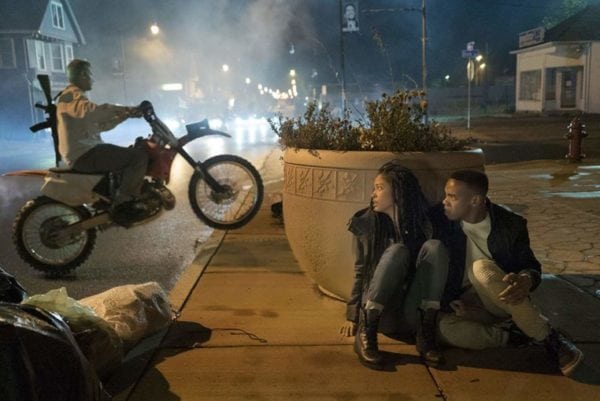
For a start, we get to know the world well with numerous prosaic parts of it being developed. We get a better idea than ever how the NFFA run the country, and the sorts of propaganda they adopt. We get to see how history books cover the invention of The Purge. But most importantly, we get a glimpse into what the average American thinks of it. One character asks, “If you’re brought up in a culture that has something like the Purge, does it give everyone a little PTSD?” These psychological effects are the backbone of all the season-long arcs. Think of it as a reflection of the gun control debates: some people want it abolished, whereas others defend it on the grounds of heritage and freedom. As per the first season, that played on the idea of the forgotten people riling against the system, we also get some insight into why The Purge may seduce otherwise reasonable individuals or amplify their bad bits. In particular, Ben’s arc shows a young man becoming increasingly radicalised off the back on an initially traumatising moment at the start. It’s maybe the best developed, and most dramatically interesting, character journey from any outing. There is also a wider range of crimes shown, including a heist, and an attempt to answer some of the questions fans have raised for years: what if you start a crime before the sirens go off but finish afterwards? And how could this dumb policy possibly cut crime?
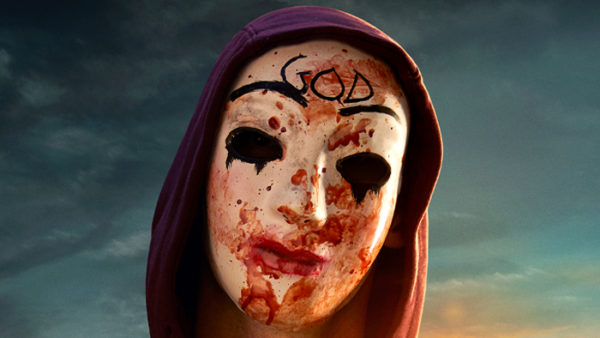
It helps that Season 2 is also the most overtly funny entry in The Purge canon. There are bits about Purge tourism for a hen party, which was a neat idea briefly touched on before, and dark dress-up montages as girls get ready to paint the town red. We also see a production line assembling memorial boxes of the dead from a communal vat of ashes to Purge victims’ parents to thank them for their heroic sacrifice. Embracing this more satirical tone makes the long-standing contrasts between The Purge’s messages and its delivery less jarring. Outside these sequences, bits about campus politics, incels and fake news establish it as a parallel to our own world. Even if it will ultimately fail, since Election Year shows the ending of the annual night through democratic means, this gives the call to arms in its finale an urgency. That being said, no sooner had The Purge been called off than angry insurgents started fighting back to the sounds of sirens and David Bowie: rocking out with their glocks out. Mayhaps we’ll get to see the resistance again as the country once again descends into civil war and political tribalism. As per the tagline, it’s an American tradition.


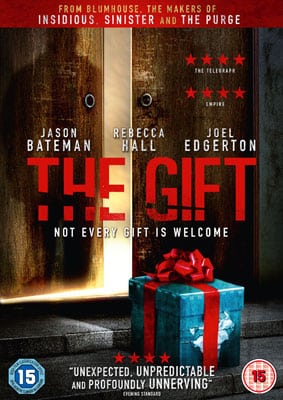
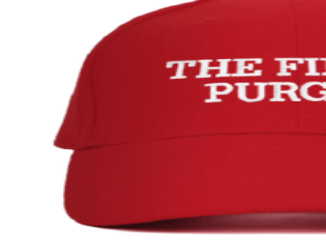
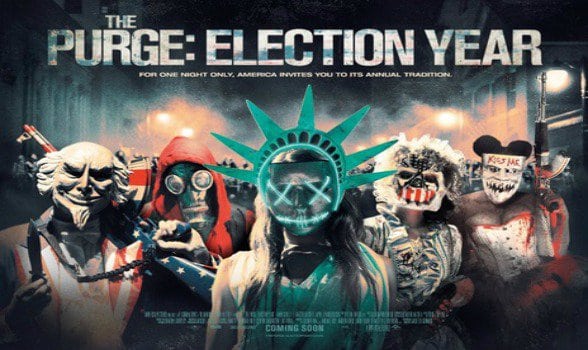
Be the first to comment